With the A Peer Apart award, SPE recognizes those dedicated individuals involved in the review of 100 or more papers for SPE’s peer-reviewed SPE Journal.
Peer review is an essential part of scientific publishing and helps to ensure the information contained in a journal is well supported and clearly articulated. Volunteers who commit their time to reviewing papers make substantial contributions to the technical excellence of our industry’s literature.
Each year, SPE typically has more than 1,400 individual reviewers submitting more than 3,500 reviews for the SPE Journal. These committed volunteers come from a variety of backgrounds, including academia, service and operator companies, and consultancies from around the world.
Peer review is a demanding and time-consuming task. Over time, the individuals receiving this honor have volunteered hundreds of hours to the Society, making SPE journals a valuable resource to authors and the industry. It is an outstanding accomplishment for those who reach the milestone of reviewing 100 papers.
This year, 14 individuals joined this elite group, bringing the total membership of A Peer Apart honorees to 235 dedicated members.
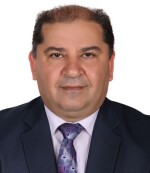
Salam Al-Rbeawi is a professor of petroleum and natural gas engineering at the Middle East Technical University–Northern Cyprus Campus. He has more than 30 years of oil and gas industry experience, cultivated by teaching, training, and consultation careers. His major interests are the characterization of unconventional reservoirs, hydraulic fracturing design and optimization, pressure transient analysis, decline curve analysis, and CO2 geosequestration. Al-Rbeawi holds a PhD from the University of Oklahoma, Mewbourne School of Geological and Petroleum Engineering. He is a member of several international oil and gas industry organizations and associations and has authored or coauthored more than 60 published articles and presented more than 50 research papers at several international conferences. Al-Rbeawi has reviewed more than 2,000 research papers for top-ranked petroleum industry journals and was chosen by Publons as the first-rank reviewer in 2018, with 132 reviews worldwide. He has been a technical committee member, moderator, and keynote speaker for several energy conferences, has received numerous SPE certificates of appreciation and letters of recognition, and was a recipient of the SPE Outstanding Technical Reviewer Award in 2020, 2022, and 2023. Al-Rbeawi can be reached at salam@metu.edu.tr.

Pål Østebø Andersen is an associate professor of reservoir management in the Department of Energy and Petroleum Engineering at the University of Stavanger (UiS), Norway. His expertise involves mathematical modeling applied to reservoir engineering and his research interests are toward special core analysis (such as spontaneous imbibition, capillary end effects, design and interpretation of experiments), tight and unconventional reservoirs, the energy transition, oil and gas, CO2 storage and utilization, wettability alteration, and chemically reactive flow. Andersen holds a PhD in petroleum technology and an MSc degree in reservoir technology, both from UiS. He has published more than 130 technical papers, of which approximately 20 journal articles and 30 conference papers are with SPE. He has reviewed more than 550 papers related to subsurface engineering for different journals. He serves editorial roles with SPE Journal; Gas Science and Engineering; Capillarity; and Advances in Geo-Energy Resources. Andersen received the 2021 SPE Cedric K. Ferguson Medal and has also received SPE recognition as an Outstanding Technical Reviewer.

After an early career in the nuclear industry, Garfield Bowen joined a small UK startup, ECL, where he was part of the development team that produced the Eclipse reservoir simulator, which went on to become the industry standard. After the company was sold to Schlumberger, Bowen worked in multiple technical and managerial positions associated with reservoir management and simulation. In 2013, his career came full circle when he became part of a startup developing the 6X simulator, aimed at exploiting the power of the GPU. Subsequently, 6X has proved itself to be the most practical simulation tool for US shale oil developments. Bowen continues to be the technical lead at Ridgeway Kite as well as contributing to the industry via his work with SPE.

Yuguang Chen is a principal reservoir engineer at the Reservoir Engineering Center of Excellence within Chevron’s Subsurface organization. From 2020 to 2025, Chen served as a reservoir engineering advisor in the Mid-Continent Business Unit of Chevron North America Exploration and Production Company, where she led a range of technical studies aimed at optimizing Permian development to improve production performance and capital efficiency. Her areas of expertise include reservoir simulation, uncertainty quantification, and the development of shale and tight assets. Chen holds MS and PhD degrees in petroleum engineering from Stanford University. She has served as a board member of the SPE Golden Gate Section (2007–2013) and currently serves on the SPE Distinguished Lecturer Committee and the Technical Program Committee for the Unconventional Resources Technology Conference (URTeC). Chen is the recipient of the 2022 URTEC Best Paper Award, 2023 SPE Regional Reservoir Description and Dynamics Award, and 2024 Society of Asian Scientists and Engineers (SASE) Professional Achievement Award.

Xiao (Jimmy) Jin is a completion and well research engineer with ExxonMobil Technology and Engineering Company. His current research work is focused on evaluating novel stimulation technologies for unconventional wells. Before joining ExxonMobil, Jin worked at Stepan Company and Baker Hughes, where he worked on surfactant product development for oilfield applications and as a hydraulic fracturing/well cementing field engineer, respectively. He holds PhD, MSc, and BSc degrees, all in petroleum engineering from Texas A&M University. Jin is currently serving as an associate editor for SPE Journal and has also served as a technical reviewer for the past 6 years.
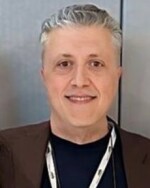
Apostolos Kantzas is a professional engineer and professor in the Department of Chemical and Petroleum Engineering at the University of Calgary and holder of the Energi Simulation Industrial Research Chair in Geoenergy. He is the director of the Energi Simulation Geoenergy Centre. Kantzas leads research that is related to problems of flow through porous media, enhanced oil recovery, soil remediation, reactor design, magnetic resonance applications, and tomographic imaging. He holds a PhD and an MASc, both in chemical engineering, from the University of Waterloo. Kantzas is a member of APEGGA, SPE, CSChE, AIChE, CWLS, and SCA. He has authored or coauthored more than 500 technical papers, 35 patents, and more than 500 technical reports. Kantzas is also the president and CEO of PERM Inc., specializing in oil and gas research and services since 1995.

Fei Li is a professor of electronic engineering at Xi’an Shiyou University, China. Prior to joining the university, he served as a research and development engineer in drilling and measurement at Schlumberger, working in both the UK and the US from 2006 to 2019. His research focuses on rotary steerable systems, drilling dynamics, intelligent drilling, and drilling automation. Li holds a PhD in electrical and electronic engineering from the University of Strathclyde, UK, and bachelor’s and master’s degrees from Xi’an Jiaotong University, China. He has authored more than 70 technical papers and holds 20 international and Chinese patents. Li has been an SPE member since 2014 and currently serves as an associate editor for SPE Journal.
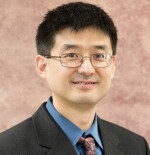
Yuanbo Lin is an accomplished petroleum engineer, data scientist, and materials scientist with more than 2 decades of multidisciplinary expertise spanning oil and gas operations, data analytics, and advanced materials development. In his current role as the digital oilfield project manager at Chevron in Midland, Texas, Lin has overseen projects focused on artificial lift modeling, production optimization, and the application of machine learning to unconventional reservoirs. His professional background encompasses experience in production engineering, reservoir engineering, mechanical design, and materials innovation with leading organizations including Chevron, Schlumberger, and Sandvik.
Lin holds a PhD degree in materials science and engineering from Northwestern University, an MS degree in petroleum engineering from the University of Southern California, and MS and BS degrees, both in materials science and engineering from Tsinghua University in China. He has authored or coauthored more than 25 peer-reviewed publications in solid oxide fuel cells materials/devices and reservoir simulation, four books in computer graphics, and holds 10 patents in subsurface characterization and downhole tool design. Since 2020, he has served as a technical reviewer and associate editor for SPE Journal, receiving multiple SPE Outstanding Associate Editor and Technical Reviewer awards. Additionally, Lin serves as the study group chair for the SPE Permian Basin Chapter and is a board member of the American Red Cross serving the Permian Basin.
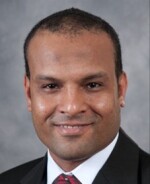
Omar Mahmoud is an associate professor and acting head of the Petroleum Engineering Department at Future University in Egypt, where he has served as an assistant professor since 2019. Before joining academia, Mahmoud worked as a petroleum engineer with Apache Corporation’s North American Unconventional Resources Team, USA. He holds a PhD in petroleum engineering from Texas A&M University, awarded in 2017. His earlier academic career included 8 years as an assistant lecturer at Suez Canal University in Egypt, where he also earned his BSc and MSc degrees in petroleum engineering.
Mahmoud’s research spans drilling fluids, nanoparticle applications, oilfield chemistry, formation damage, well integrity, unconventional resources, and machine learning/artificial intelligence applications in petroleum engineering. He has authored or coauthored more than 85 peer-reviewed publications and contributed to three book chapters. He is an active member of the scientific community, serving as a reviewer and editor for top-tier journals. Mahmoud has completed more than 400 verified reviews and currently serves as associate editor for SPE Journal. He received the SPE Outstanding Technical Reviewer Award in 2022, 2023, and 2024 for his contributions.
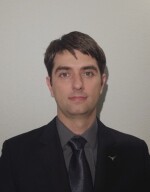
Artur Posenato Garcia is an applied scientist and energy professional with over a decade of experience across the aerospace and energy industries. At Chevron’s Technology Center in Houston, he develops computational and physical modeling workflows for petrophysical and fluid behavior characterization in porous media. Garcia’s interdisciplinary expertise spans multiphase transport, phase behavior, electromagnetic sensing, and the modeling and control of dynamic systems. He holds a PhD in petroleum and geosystems engineering and an MSc degree in computer science, both from the University of Texas at Austin. He has authored more than 60 technical publications, including 20 peer-reviewed journal articles, and contributed to multiple patent applications.
Garcia has been recognized as a three-time SPWLA Distinguished Speaker and currently serves as Vice President of Technology Elect on the SPWLA International Board. He is an associate editor for SPE Journal and a frequent reviewer for journals including SPE Journal, Geophysics, Petrophysics, and the Journal of Applied Geophysics. His technical contributions have been honored with the SPE Outstanding Technical Reviewer Award and SPE Outstanding Associate Editor Award (2023, 2024) and the SPWLA Meritorious Technical Achievement Award (2024).

Bo Ren is a sustainability scientist at the Aramco Houston Research Center, specializing in technology development, innovation, and application with a focus on techno-economic analysis, life-cycle assessment, and subsurface flow modeling related to oil, gas/LNG, CCUS, and hydrogen. Prior to joining Aramco, Ren spent 5 years at the Texas Bureau of Economic Geology, He holds a PhD in petroleum engineering from the University of Texas at Austin. Ren has served on technical committees for SPE ATCE and CCUS conferences and has received numerous honors, including the SPE Regional Giovanni Paccaloni Young Professional Service Award (2021), Saudi Aramco President’s Excellence Award (2024), SPE Regional Sustainability and Stewardship Award (2024), and recognition as one of the World’s Top 2% Scientists (2024). He is also a multiyear recipient of the SPE Outstanding Technical Reviewer and SPE Outstanding Associate Editor awards.

David Rousseau is a senior research engineer at IFP Energies nouvelles. Over the past 22 years, he has been working on questions related to the flow of complex fluids in porous media, with applications in chemical EOR, produced water reinjection, and now production optimization in geothermal systems. Rousseau’s initial expertise is in rheology of polymer melts and polymer gels, and his past research works include the development of microgels systems for water shutoff and conformance control, the modeling of formation damage caused by colloidal particle deposition, the development of mobility and conformance control methods based on associative polymers, and the development of polymer and surfactant based EOR methods for various types of reservoirs (including heavy oil, HT/HS, low-permeability, and carbonates). Rousseau managed the research and development activities of the EOR Alliance on polymer and surfactant-based processes and led numerous field case study projects for oil operators, aiming at implementing chemical EOR solutions. His present activities concern production and operation in geothermal systems, focusing on the prevention and remediation of injectivity decline as well as thermal short-circuit effects. He holds an MSc degree in physics from the University of Paris, France, and a PhD in soft matter physics from the University of Strasbourg, France.
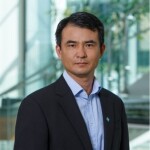
Chicheng Xu has more than 20 years' industry experience at SLB, BP America, BHP Billiton, Aramco Americas, and CNPC USA. His research focuses on advancing subsurface intelligence and automation through computational techniques and data analytics, particularly for interpretation, classification, and modeling using multiscale subsurface data integration. He holds a PhD in petroleum and geosystems engineering from the University of Texas at Austin, awarded in 2013.
Xu cofounded and chaired the SPWLA PDDA SIG and is currently leading the Open Petro Data & Utilities (OPDU) project integrating Petro-LLM capabilities. He served on editorial boards for prominent journals including SEG Interpretation, SPWLA Petrophysics, SPE Reservoir Evaluation & Engineering, and SPE Journal. He will assume the role of an executive editor for SPE Journal starting in September 2025.
Xu has received multiple technical and service awards, including the 2018 Regional Formation Evaluation Technical Award from the SPE Gulf Coast Section, the 2019 SPWLA Meritorious Service Award, the 2020 SPE Outstanding Associate Editor Award, the 2021 SPWLA Meritorious Technical Award, and the 2022 Regional Data Science and Engineering Analytics Technical Award. In 2025, he received the Best Paper Award from Artificial Intelligence in Geosciences and the SPWLA Distinguished Technical Achievement Award.

K.C. Yeung is currently the executive chairman of Partners Energy Development Corp. in Calgary, Alberta, Canada. He also serves on the board of directors for Energi Simulation, a foundation which provides funding for subsurface energy simulation research. Yeung has been involved in various heavy oil and oil sands projects in reservoir engineering and development as well as research and development for 40 years (1977–2016) with Texaco Canada, Suncor, Husky, and Brion Energy. He had been a key member in all of Suncor’s operated and joint-venture heavy oil/oil sands projects over the 30 years that he was there.
Yeung has been giving lectures, short courses, and presentations at conferences and universities on heavy oil recovery methods in Canada, China, Europe, Middle East, South America, and the US to promote Canada’s heavy oil technology and development as well as to share his knowledge and experience with the industry. He has served as the technical chairman for many heavy oil conferences, including the World Heavy Oil Congress (WHOC) from 2006 to 2018, was the president of the Canadian Heavy Oil Association (2005–2006), and was the director of SPE Canada (2011–2013).

